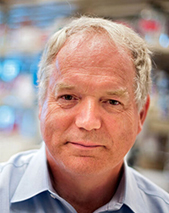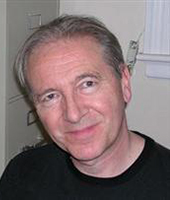
PL-1 Controlling the HCV pandemic
Prof. Michael Houghton 
Director, Li Ka Shing Applied Virology Institute,
Li Ka Shing Professor, Department of Medical Microbiology & Immunology,
7-126A Li Ka Shing Centre for Health Research Innovation,
University of Alberta, Edmonton, T6G 2E1, Canada

PL-2 Hsp72 in mammary tumor growth, metastasis and response to treatment
Prof. Stuart K. Calderwood
Director of Molecular and Cellular Radiation Oncology,
Department of Radiation Oncology,
Beth Israel Deaconess Medical Center,
Harvard Medical School, Boston, MA 02215, USA
Heat shock protein 72 (Hsp72) is one of the key inducible proteins that protect cells from proteotoxic stress, enabling cellular life, but becomes stably overexpressed in mammary carcinoma and is essential for malignant cell growth, invasion and metastasis. We have investigated the mechanisms underlying the role of Hsp72 in mammary tumor development through its interacting roles in the tumor and stromal cells.
We firstly investigated the role of Hsp72 in the cancer cell intrinsic c-MET pathway of tumorigenesis in mammary tumors. We aimed to investigate the hypothesis that Hsp72 is required to maintain levels of oncogenic phospho-MET and thus the supply of tumor initiating cells, cancer cell invasion and metastasis. Hsp72 was essential for both c-MET levels in cancer cells as well as for expression of HGF (hepatocyte growth factor) it’s activating ligand expressed mainly in tumor stromal cells. Next, we examined the role of Hsp72 in regulating the expression of extracellular matrix (ECM) proteins, shown in our RNA-Seq experiments to be primary targets of Hsp72. We examined the hypothesis that Hsp72 regulates signaling upstream of ECM genes in mammary cancer, with type 1 collagen fibrils being the primary structures investigated, and thus influences metastasis. We asked if tumor stroma cells, with emphasis on carcinoma associated fibroblasts (CAF), were primary regulators of the Hsp72 / ECM / metastasis nexus through effects on expression of transforming growth factor beta (TGFb). We investigated whether Hsp72 in CAF regulates ECM and leads to tumor desmoplasia by permitting TGF beta expression and thus synthesis of collagen 1 and other ECM genes through downstream SMAD transcriptional signaling. As tumor desmoplasia also involves a second key mechanism involving the cytokine CXCL12, we next showed HSP72 to be essential for expression of this protein in tumor fibroblasts. We examined roles for Hsp72-mediated CXCL12 and its receptor CXCR4 in desmoplasia in primary tumors and metastases. Following from this, as CXR4 is associated with an immunosuppressive milieu, repels CTL and increases levels of suppressive PDL1, we examined the role of Hsp72 /CXCL12 / CXCR4 / PDL1 in mediating immune properties of the tumor milieu. Our hypothesis was that the high levels of tumor Hsp72 associated with mammary cancer mediate immune suppression and thus promote metastasis through its combined influences on HGF, TGFb and CXCL12, suggesting Hsp72 inhibition as a strategy for multitargeted therapy.
We next queried the effects of cancer therapy on mammary tumors. We found that tumor cells surviving radiotherapy or chemotherapy underwent a transformation to a highly treatment resistant, metastatic phenotype with stem cell-like properties. Our data indicated that these effects of cytotoxic therapy involved secreted factors and the effects of treatment could be reproduced by conditioned medium obtained from the treated cells. These effects were dependent on expression of Hsp72 and were not observed in Hsp72-/- breast cancer cells.
We are currently examining the biochemical mechanisms underlying the intimate role of Hsp72 in a wide range of We are currently examining the biochemical mechanisms underlying the intimate role of Hsp72 in a wide range of cancer signal transduction mechanisms though chaperoning key protein kinase cascades.
